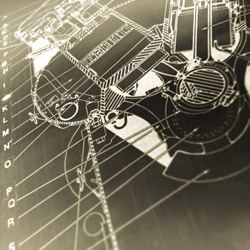Making diesel engines cheaper and cleaner
Diesel has been remaking its image over the last decade with smoother, quieter engines. Together with their inherently greater efficiency, reliability and durability compared to other internal combustion engines (ICEs), diesel engines have become increasingly attractive. Diesel engines do have a down side, namely high levels of NOx (gases in the nitric oxide family) and particulate matter (soot) emissions. With ever tighter emissions regulations, the expensive exhaust treatment systems required to comply with environmental legislation have become an issue. Catalytic converters convert harmful pollutants in exhaust into less toxic substances via catalysed chemical reactions. Conventional catalytic converters are based on precious – and expensive – metals such as platinum that instantly convert hazardous substances to others on contact. They are often technically or economically prohibitive for use in diesel non-road vehicles. European researchers supported by funding of the ‘Novel exhaust catalyst converter for mobile non-road machinery’ (Exocat) project sought to develop a new catalytic converter for diesel mobile non-road machinery using non-precious metals and an innovative spray coating technology. Exocat investigators produced three novel catalytic powder precursors not based on precious metals with significantly enhanced catalytic properties compared to others. Project partners then developed a new soft plasma spraying technology and used it to produce catalytic coatings using the powders. Furthermore, they developed important technologies for corrugation, rolling and fastening of the catalytic element to the catalytic block. Tests on the 5 most promising catalytic blocks demonstrated up to 90 % NOx conversion for non-road applications such as diesel locomotive and trains. In addition to delivery of novel catalytic elements for reducing NOx emissions in diesel non-road applications, the Exocat project developed several industrial scale technologies for production of powder precursors, soft plasma spraying and mechanical treatment of catalytic elements that are transferable to other sectors. Exocat have made significant contributions to the field of catalytic converters both in terms of materials and processes with important implications for business and the environment.







